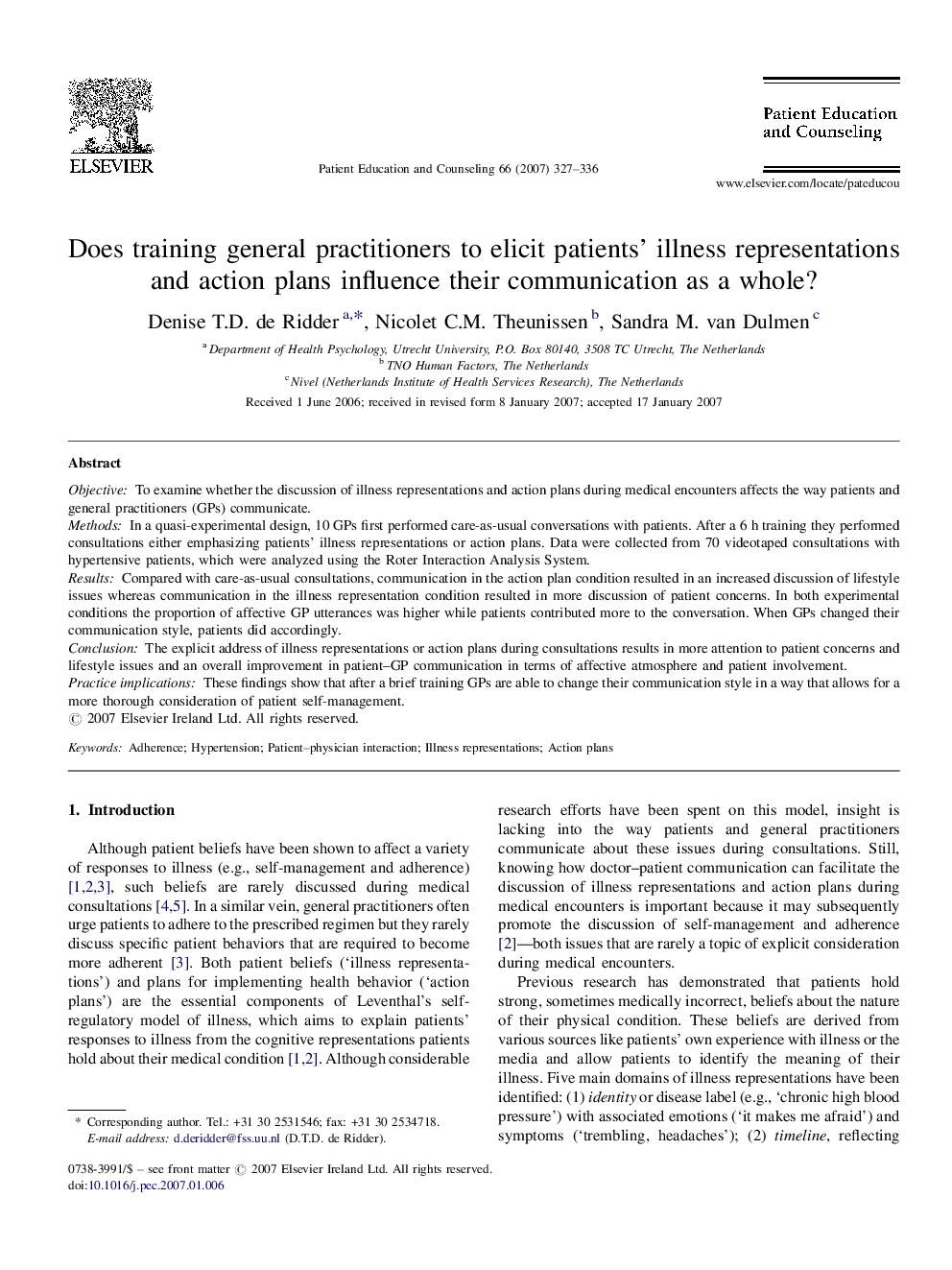| کد مقاله | کد نشریه | سال انتشار | مقاله انگلیسی | نسخه تمام متن |
|---|---|---|---|---|
| 3816586 | 1246249 | 2007 | 10 صفحه PDF | دانلود رایگان |

ObjectiveTo examine whether the discussion of illness representations and action plans during medical encounters affects the way patients and general practitioners (GPs) communicate.MethodsIn a quasi-experimental design, 10 GPs first performed care-as-usual conversations with patients. After a 6 h training they performed consultations either emphasizing patients’ illness representations or action plans. Data were collected from 70 videotaped consultations with hypertensive patients, which were analyzed using the Roter Interaction Analysis System.ResultsCompared with care-as-usual consultations, communication in the action plan condition resulted in an increased discussion of lifestyle issues whereas communication in the illness representation condition resulted in more discussion of patient concerns. In both experimental conditions the proportion of affective GP utterances was higher while patients contributed more to the conversation. When GPs changed their communication style, patients did accordingly.ConclusionThe explicit address of illness representations or action plans during consultations results in more attention to patient concerns and lifestyle issues and an overall improvement in patient–GP communication in terms of affective atmosphere and patient involvement.Practice implicationsThese findings show that after a brief training GPs are able to change their communication style in a way that allows for a more thorough consideration of patient self-management.
Journal: Patient Education and Counseling - Volume 66, Issue 3, June 2007, Pages 327–336